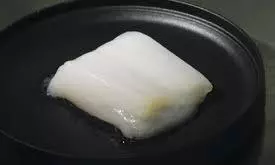
Japanese scientists grow world’s largest lab-made chicken nugget
text_fieldsIn a remarkable fusion of science and food innovation, Japanese researchers have successfully created the world’s largest lab-grown chicken nugget - without needing to harm a single bird.
The achievement marks a significant advancement in cultured meat technology and could reshape the future of food production.
The process, pioneered by scientists at the University of Tokyo, mimics the human body’s vascular system to support the growth of meat tissue. Using a special bioreactor with tiny hollow fibers, the team was able to deliver oxygen and nutrients to chicken muscle cells suspended in a gel, enabling the tissue to grow in thickness and size.
A nugget measuring up to 2 centimeters long and 1 centimeter thick - essentially, a bite-sized piece of real meat - was grown entirely in a lab.
Professor Shoji Takeuchi, the lead researcher, highlighted the core challenge the team had to overcome: ensuring cells in thicker tissue sections receive sufficient oxygen and nutrients. “Without internal perfusion, muscle cells at the center of the tissue can die,” Takeuchi explained. “Our hollow fiber system solved this by continuously supplying what the cells needed, allowing us to grow thicker and more uniform tissue.”
At present, the hollow fibers must be manually removed once the meat has matured. However, the team is working on replacing them with edible cellulose alternatives, which would remain within the meat, potentially enhancing its texture and simplifying production.
The innovation isn’t just limited to chicken. Scientists believe the same technique could be adapted to produce lab-grown beef, pork, fish, and even entire organs for medical use.
Professor Derek Stewart of the James Hutton Institute in Dundee praised the research as a major leap forward, calling it “a transformative step” and “a really elegant solution.” He added, “They’ve replicated the size and appeal of a familiar food. This is the chicken nugget model, and it works.”












